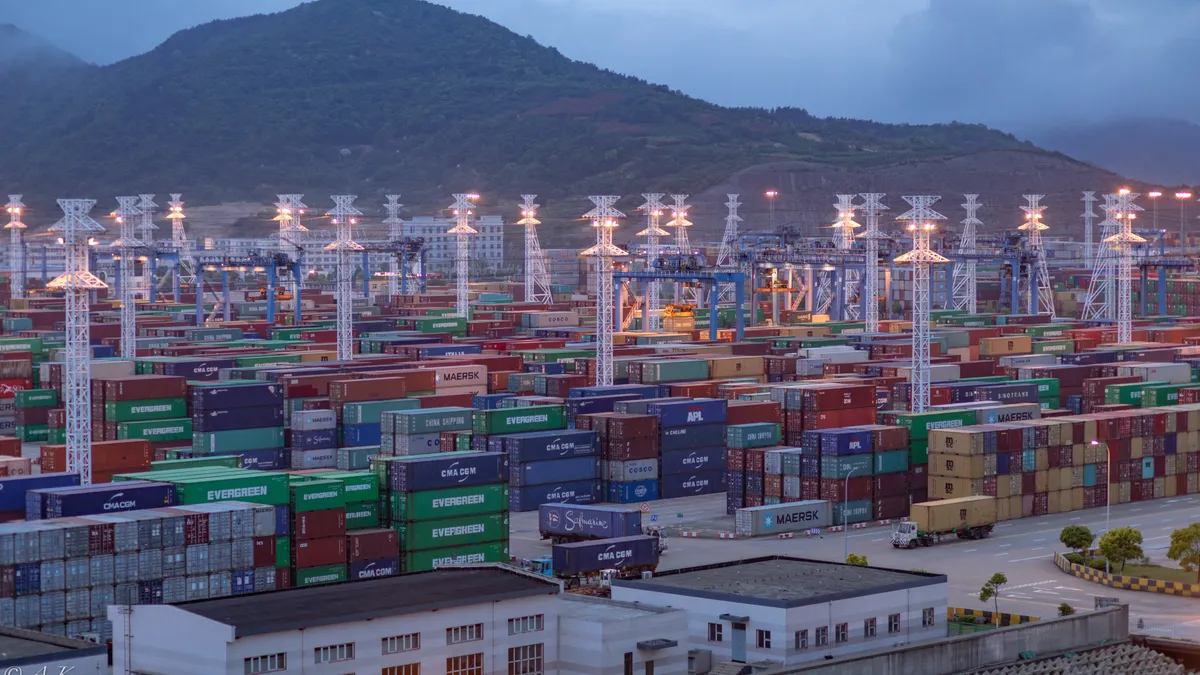Dive Brief:
- The trade war between China and the U.S. could result in an annual loss of $40 billion in U.S. exports, Industry Week reported citing research by the Institute of International Finance.
- This impact can be seen at Asian ports where empty containers accounted for more than a quarter of all TEU traffic, according to The Loadstar.
- None of this is great news for ocean carriers that make their money by hauling freight, not empty boxes, and could lead to higher annual contracts in the future, according to The LoadStar.
Dive Insight:
Perhaps the fundamentals of launching a trade war with China have merit. The theft and mistreatment of intellectual property, a potential monopoly around 5G cellular technology and market damaging dumping of some commodity products reflect an economic approach that has impacted the U.S. economy. The use of tariffs as an economic disincentive to penalize China for these activities is certainly one way to get their attention and to seek a negotiated solution.
Successful supply chains depend on long term stability. The politicization and mercurial approach to the application of tariffs on China, as well as the threats of tariffs on other countries, have created economic uncertainty. Public negotiations, often driven by social media, are not helpful at best and confusing and counterproductive at worst. Successful planning is proactive, not reactive.
The impacts of the tariffs can be felt throughout the supply chain. Tariff related cost increases are already being felt by many organizations and they are being passed on to customers and end users. Supply chains have been disrupted, and modified, because of current and threatened tariffs. Inventory has been purchased to hedge against increased costs, impacting operations and planning throughout the supply chain. Exports of certain agricultural products are down, forcing the U.S. government to provide subsidies to the growers most impacted.
The imbalance of shipping containers is but a symptom of misaligned supply and demand caused by the ongoing trade skirmishes. But it is also an indicator of real impact on the supply chain. No matter the political positioning, the tariffs have caused uncertainty in a process that thrives on consistency and dependability. While the trade issues with China now hopefully look like they may be resolved in the short term, long term ramifications in the supply chain are just coming into view.














